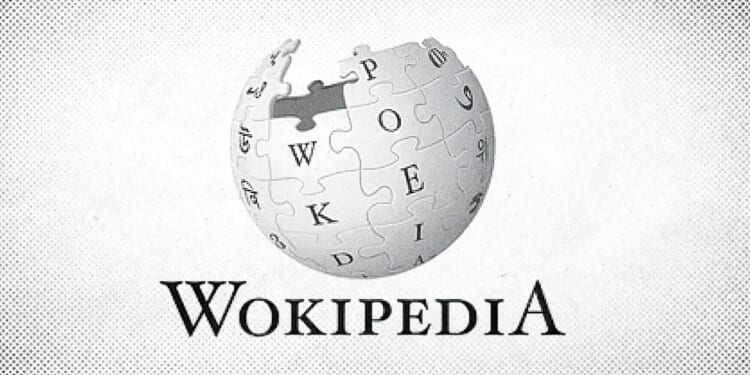As one on the cusp between Boomer and GenX, this writer remembers the door-to-door encyclopedia salesman. Back then, you could purchase a compendium of everything known to mankind in a couple of dozen volumes, using it for basic research on schoolwork or for business. They sold it to impressionable parents of young children as a way to better their grades, and for an added fee, the company would send an annual update to keep the data fresh. In the early 1990s, we purchased a set for our young child to use, although Dad got quite a bit of mileage out of it as well.
Then came the internet, and it pretty much put the world’s knowledge at your fingertips — the problem was knowing where to look. Certainly, you had search engines, but beginning in the early 1990s, there was talk about creating an online encyclopedia. The eventual result was Wikipedia, which came online on January 15, 2001.
One feature of Wikipedia was the ability for people to continually edit articles created for various subjects, allowing the website to stay up to date as the news cycle did. While it could never become a primary source, Wikipedia proved quite useful as a starting point for research. It was just like the old encyclopedia, but better since you didn’t have to go check the additional source material out of the library — Wikipedia kept its footnotes as a series of links to the news items or background information.
Now, Wikipedia is available in over 300 languages and is among the top 10 most visited websites on the planet. As its co-creator Larry Sanger explains, “Wikipedia shapes public opinion more than any other single information source of its kind, more than any newspaper or broadcast or podcast. It is the one go-to free source of information on every topic under the sun, essentially.”
Unfortunately, the gatekeepers of the website (which is a nonprofit that constantly asks users for donations) have turned it away from being a straight-down-the-middle, unbiased source of information and leaned it hard to the left.
As one example, Sanger cites its article on Yahweh, which both Christians and Jews know translates as a word depicting our Lord in the Bible. However, Sanger says its initial citation on Wikipedia “says that Yahweh was the chief god of a polytheistic pantheon of deities, and doesn’t even mention the attitudes and beliefs of modern Christians and Jews in the article.” It’s an example of what Sanger terms the “globalist, academic, secular, and progressive or GASP” viewpoint prevalent on Wikipedia.
Tim Graham of the Daily Signal adds, “Wikipedia maintains a page of ‘Reliable sources/Perennial sources,’ and naturally CNN and MSNBC are recommended as ‘generally reliable’ (along with leftist rags like Mother Jones, The Nation, and The Atlantic). Fox and Newsmax are considered unreliable, as are many conservative media outlets.”
This disparity has attracted the notice of the Senate Commerce Committee, chaired by Texas Senator Ted Cruz. In a letter to Wikimedia CEO Maryana Iskander, Cruz sought answers to a number of questions regarding the perceived “ideological bias,” noting that “Wikipedia shapes what Americans read today and what technology will produce tomorrow.” According to Julia Shapero at The Hill, “Cruz also took aim at how the Wikimedia Foundation, the nonprofit that operates the online encyclopedia, distributes grant funding. He argued the group ‘financially supports left-wing organizations that contribute to Wikipedia content,’ citing grants focused on ‘dismantling supremacist systems’ and efforts to ‘decolonize the internet.’”
On the other hand, “Texas Culture reporter” Gwen Howerton at the Houston Chronicle argued that Cruz had no idea what he was talking about. “Wikipedia is famously edited by volunteers around the world who collaborate to produce entries on every subject imaginable. But editing Wikipedia is not a fly-by-night process,” she noted. “While more mundane pages, like that of the Johnson Space Center in Houston, are easy for anyone to edit, pages about public figures (like Ted Cruz) or hot-button political topics are listed as ‘semi-protected,’ meaning that only registered Wikipedia users are allowed to edit them. Other pages, like the page for President Donald Trump, are locked and limited only to well-established editors and administrators, to protect from vandalism.”
Vandalism, though, may be in the eye of the beholder — especially when it comes to a profile of President Trump.
While Sanger suggests that more right-leaning people, as well as “users in the global South, Hindus, Christians, and Jews” should take the time to sign up to Wikipedia and edit articles rather than complaining about it, Elon Musk is working on going even further and creating what he calls Grokipedia through his artificial intelligence company xAI. The final straw for Musk was Wikipedia’s creation of a page called “Donald Trump and Fascism.” (And there’s history with Musk and Wikipedia: Two years ago, he offered, with tongue firmly in cheek, to give a billion dollars to Wikipedia on the condition they changed their name.)
Given Musk’s interest in developing artificial intelligence and track record with Twitter/X, Grokipedia wouldn’t be a bad thing for free speech. In the meantime, getting a group of right-wing white hats to sign up for Wikipedia editing duty may be a smart play. The Left is on the run everywhere else these days, reduced to bloviating and protest. To borrow a term from the late economist Walter E. Williams, working on Wikipedia from the Right would be a chance to push back the frontiers of ignorance.
















